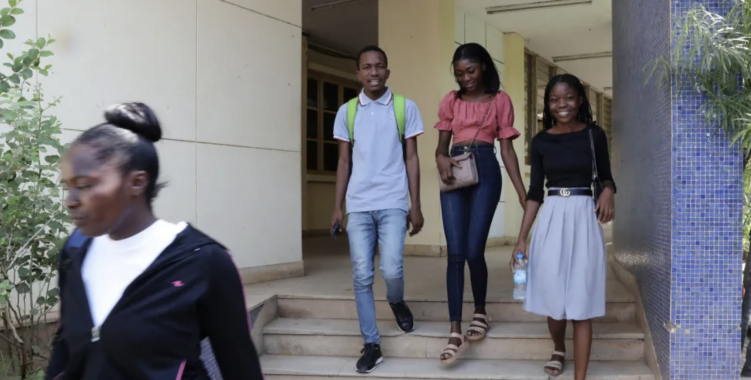Administrator of the Ensinus Group, which is part of the Lusófona Group, Teresa Damásio highlights that those two countries need qualified labor for industry and services.
The Angolan and Cape Verdean authorities "have, in fact, shown a lot of interest in this type of education. There is beginning to be a different business fabric and even industrial needs in the various regions" of Angola and Cape Verde, so "obviously professional education is beginning to be very necessary", as "good professional education is essential for a good economy".
The creation of professional training establishments in Angola and Cape Verde replicates what the Lusófona Group already has in Mozambique and Guinea-Bissau.
Author of the book "O Estado das Coisas – Visões Sobre a Igualdade, o Ensino e o Estado do País em geral", Teresa Damásio presents in this work her reflections on topics such as management and leadership, politics, education, gender equality and cooperation with Africa.
With around 27 thousand students currently studying different levels of education, in higher and secondary education establishments in Portuguese-speaking countries, with the exception of São Tomé and Príncipe and East Timor, the Lusófona Group has already trained around 30 thousand, being the "group that has the largest professional schools in Portugal", she highlighted.
Teresa Damásio recognizes that brain drain is a problem, particularly in Cape Verde.
"We work to ensure that this doesn't happen, right? And so we train people so that this doesn't happen. I would say that in Cape Verde this is a problem, in fact, completely reflected in scientific studies and statistics," highlights.
"Cape Verde has a very serious problem, acknowledged by the Cape Verdean authorities, that young people are leaving Cape Verde to study abroad," she adds.
Teresa Damásio announces that the Municipal Council of Mindelo, the country's second city, has already given land to the Lusófona Group for the construction of a university residence.
"What we understand is that Cape Verde has the perfect geopolitical, geostrategic situation to welcome students from West Africa," she says.
Unlike Cape Verde, brain drain does not occur in Guinea-Bissau.
"It's very curious. The staff always want to return to Guinea, that is, that question of 'Guineanness'", points out Teresa Damásio, referring to the concept of national identity, the sociocultural experience of the Guinean or the Creole language.
"Therefore, that very strong feeling of belonging that Guineans have, is effectively felt. And that is why I understand, my Group and I, that when we look at Guinea-Bissau, we have to understand that Guinea was and must continue to be an excellent partner within the CPLP [Community of Portuguese Speaking Countries]", she emphasizes.
Teresa Damásio believes that this is due to the country's geographical location, nestled in an overwhelmingly French-speaking region.
"Guinea is an ECOWAS [Economic Community of West African States] country, it is a UEMOA [West African Economic and Monetary Union] country. In other words, the Francophone pressure in Guinea-Bissau means that the State, the authorities and all economic agents must have a huge concern in consolidating ties" with Portugal.







